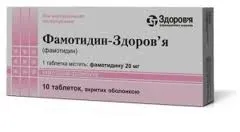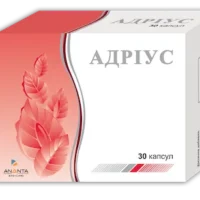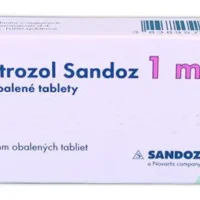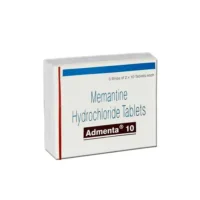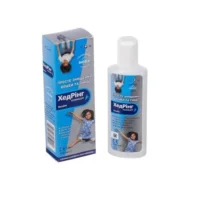Description
Famotidine (Famotidin) Coated Tablets 0.02 №10
Composition
Active ingredient: Famotidine
Other ingredients: Microcrystalline cellulose, croscarmellose sodium, colloidal silicon dioxide, magnesium stearate, hypromellose, titanium dioxide, polyethylene glycol.
Mechanism of Action
Famotidine acts as a histamine-2 receptor antagonist, inhibiting the action of histamine on the H2 receptors of the stomach. This mechanism reduces the production of stomach acid, providing relief from symptoms associated with excess stomach acid.
Pharmacological Properties
Famotidine is a selective histamine-2 receptor antagonist that competitively inhibits histamine at the H2 receptors of the gastric parietal cells. By reducing gastric acid secretion, famotidine helps in healing ulcers and managing acid-related conditions.
Indications for Use
Famotidine Coated Tablets are indicated for the treatment of gastroesophageal reflux disease (GERD), gastric and duodenal ulcers, and hypersecretory conditions such as Zollinger-Ellison syndrome.
Contraindications
Do not use Famotidine Coated Tablets if you are allergic to famotidine or any other components of the product. Consult a healthcare professional before use if you have renal impairment or are pregnant.
Side Effects
Common side effects may include headache, dizziness, constipation, and diarrhea. Rare but serious side effects may include thrombocytopenia, agranulocytosis, and anaphylaxis. Discontinue use and seek medical attention if you experience any severe adverse reactions.
Usage Instructions
Adults: Take 1 tablet orally once daily, preferably at bedtime or as directed by a healthcare provider. Swallow the tablet whole with a glass of water. Do not exceed the recommended dosage.
Benefits Compared to Analogues
Famotidine has demonstrated efficacy in managing acid-related disorders comparable to proton pump inhibitors. It offers a similar safety profile with effective symptom relief and ulcer healing properties.
Suitable Patient Groups
Famotidine Coated Tablets are suitable for adults and elderly patients. Use in children should be under the supervision of a healthcare professional.
Storage and Shelf Life
Store Famotidine Coated Tablets in a cool, dry place away from moisture and heat. Keep the product in its original packaging and out of reach of children. Check the expiration date before use and discard any expired tablets.
Packaging Description
Famotidine Coated Tablets are available in a blister pack containing 10 tablets. Each tablet is coated for easy swallowing and protection of the active ingredient.
Clinical Evidence and Proven Effectiveness
Studies have shown the efficacy of famotidine in treating acid-related conditions such as GERD and peptic ulcers. Research published in the American Journal of Gastroenterology demonstrated famotidine’s effectiveness in ulcer healing and symptom relief.
In a comparative study published in the Journal of Clinical Gastroenterology, famotidine was found to be as effective as other proton pump inhibitors in managing GERD, highlighting its therapeutic value in acid-related disorders.

